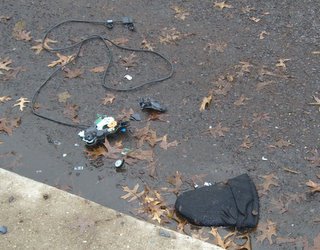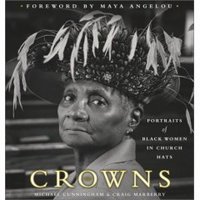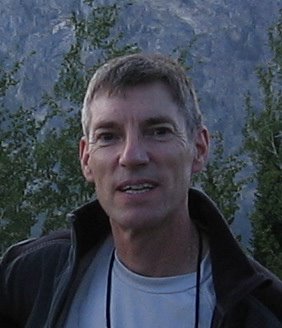Something has been bothering me for a few days, since last Saturday night to be accurate. The question that’s been nagging at me is, “why do liberals spend so long arguing with their allies that they end up distancing them and fragmenting every effort to improve things?” They spend so long preaching change and moralizing to people who don’t need convincing in the first place, that they end up alienating the very group they could enlist in their cause.
Take this guy I met at party, we’ll call him Ed, because that was his name. Ed is nice, retired, Habitat for Humanity, Bush loathing (doesn’t matter which one to me either), volunteer type of person. He is a gregarious host, serves up a decent dark beer and is open to conversation. He is also a rabid fan of the European health care system, having spent several years in Germany. I am not sure he was there before or after unemployment hit 11.6% this year, having risen stubbornly for the past 10 years. No matter, he views the US medical system like the antichrist and 20 % of the population without basic medical cover, as sinful.
Well, I am no fan of fat care health insurance companies and funds that should be going to doctors, nurses and patient care being spent on billing systems. Being in transition or out of work as it used to be called, I am acutely aware of the flimsiness, cost and inadequacy of the state provided comfort blanket. So Ed and I agreed. Not according to him. No, he prescribes a strong dose of the European system, specifically the UK National Health system.
This is a system that was devised 60 years ago and is still wearing the same post war ration book clothing and his suggestion would be laughable if it did not make me feel so sick inside. We were allies no more in the fight for a better medical system for a needy John or Jane Doe.
I tell him that in my 45 year experience of it, the system is archaic and terrible, but he wants specific examples. This is difficult for me, not because I have none, but because I do. I know people that have died under its inadequate glance, instead of its alert and watchful eye. Heck, at eight years old, I was nearly one of them due to delays in diagnosing acute appendicitis that ruptured mixing poisonous fluids to the blood circulating inside me.
But it’s my dad I think of. He took out private health coverage for all of us to augment the inadequate health system and so that he could have a sinus operation and another for fusion of his vertebrae to fix a poorly treated work related accident, without waiting a painful 12 months. Even that did not help when he lost his job and could not afford premiums and reverted to National Health. He was not helped by a system, private or National Health that was content to treat only the effect of a disease, without consideration of the cause. He bounced from unemployment, to a stroke and then a heart attack that the National Health doctor told me was mild and meant that he would be home the next day.
That night I looked at him, lying in an open ward, with no heart monitor, an oxygen mask clamped to his face, unable to speak because of the dryness of his lips and throat. I removed his mask briefly and dribbled water on his lips. He was sad and frightened as he scratched at the skin under the metal strap of the wrist watch he had been given for 25 years service, just before they eliminated his job, and slowly pulled it off, passing it to me for safe keeping. When I left I carried it in my hand to the end of the ward not wanting to assume ownership, and turned to look back at him. He saw me and raised a hand, but only from the wrist and as it flopped down again, I slid the watch on my wrist and mouthed “I love you, see you tomorrow night.” I never did.
He died the next morning from a massive heart attack, alone except for my mother who was with him and ran frantically searching for medical staff to help the man she had been married to for 30 years and for whom she could do nothing to stem the pain.
My dad, dead at 52 years of age; that is the legacy of the UK National Health System. It wasn’t until I came to Boston, even after 2 years in Canada, that I even realized that there were health care screening options for men.
This year was a milestone for me, of a sort. This year, I passed the age that my dad was when he died 27 years ago. My doctor, at my now bi-annual check up, remarked on me “beating his mark”, but it was with great sadness, for I knew that he had now been missing from my life for more years than I new him in his.
Ed wanted to know specifics, I couldn’t tell him. I was angry, bloody angry, but not at the all inclusive National Health system, that works well if you are well, but at Ed and his liberal rhetoric and quick fix solutions that made me want to argue against him, instead of uniting and arguing with him.
 New toys, new clothes and new hopes abound at this time of year. Old ones are discarded on purpose or accidentally cast off. Perhaps these were dropped by a careless trash collector or worse, as a result of someone not looking twice and listening.
New toys, new clothes and new hopes abound at this time of year. Old ones are discarded on purpose or accidentally cast off. Perhaps these were dropped by a careless trash collector or worse, as a result of someone not looking twice and listening.







